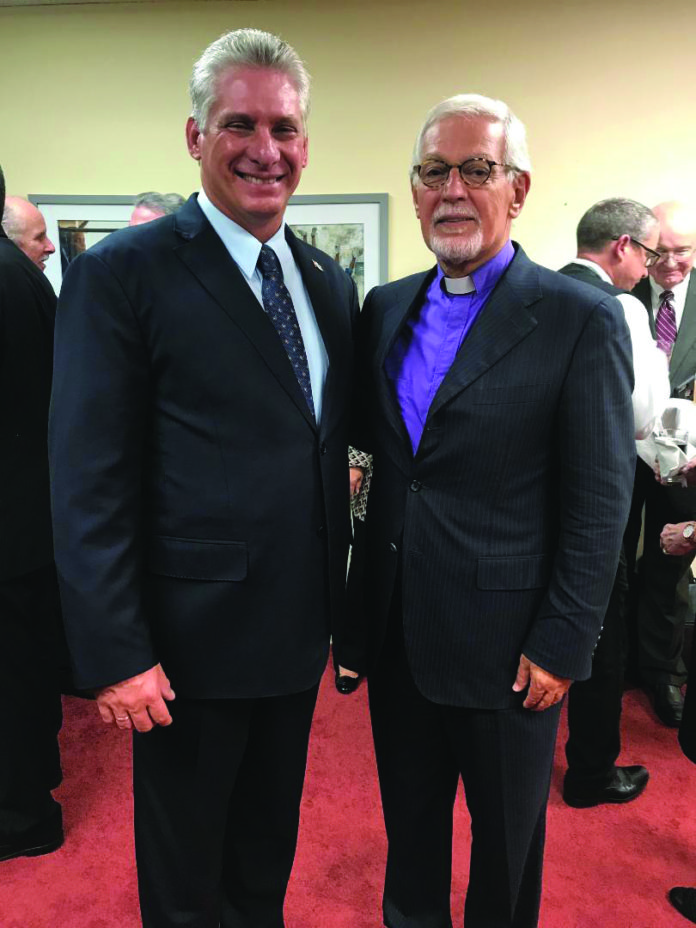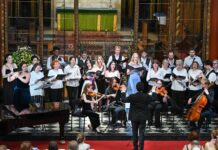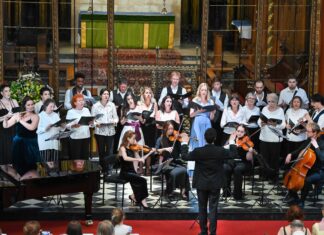WASHINGTON — Archbishop Vicken Aykazian, Diocesan Legate and Ecumenical Director of the Eastern Diocese of the Armenian Church of America, participated recently in ecumenical delegations traveling to Cuba, meeting with the Cuban president, and speaking with the Iranian foreign minister.
The Council of Churches of Cuba invited a delegation from the National Council of Churches of Christ in the US (NCC) to go to Cuba from August 22 to 25 to help celebrate the 70th anniversary of the creation of the World Council of Churches. Five church leaders went, including Aykazian.
Aykazian explained that the Cuban government knew of their visit and invited them to meet with various authorities. Minister of Foreign Affairs Bruno Rodriguez Parrilla cut short his vacation to speak with them.
Archbishop Aykazian said, “We discussed how we can bridge the differences between the US and Cuba and create a peaceful coexistence between Cubans and Americans.” He said that as always on his trips and meetings, he brought up the question of the Armenians. He related that they played an important role in the life of Cubans and that Soviet leader Anastas Mikoyan was an Armenian. The foreign minister replied that of course, he knew about this very well, and that Mikoyan was a hero for Cubans.
There are very few Armenians living in Cuba now, said Aykazian. They probably do not number over 50, he estimated. He did not have the opportunity to encounter any of them.
The ecumenical visiting delegation was on Cuban television every day of its visit. It met with local people, church leaders and other governmental authorities, including ministers and former representatives of Cuba to the US. The problem of what is happening to American diplomats in Cuba was discussed. The Cuban officials assured the delegation that they had nothing to do with it and invited the US government to come and check on the spot.








